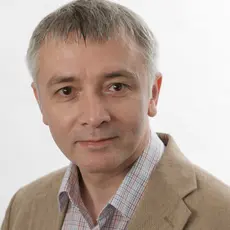"Doubling income is very simple" - A Conversation with Philanthropy Expert Prof. Adrian Sargeant
We talked to Prof. Adrian Sargeant, with whom we will host our Fundraising Bootcamp next march, about his specialization in philanthropic psychology, what fundraising means to him, and why there are currently more career opportunities in fundraising than ever. He revealed that it is easy to double an organization’s income, and he even offered some advice on how to do that.

Prior to becoming the Co Director of the Institute for Sustainable Philanthropy, Prof. Adrian Sargeant was the Executive Director of the Philanthropy Center, a social business that develops fundraising education and training for charity and non-profit clients. Formerly the first Hartsook Chair in Fundraising at the Lilly Family School of Philanthropy at Indiana University, Adrian is passionate about achieving massive growth in philanthropy. All his work is focused on helping organizations develop the value donors get from their giving. He specializes in philanthropic psychology, a new scientific field aimed at increasing the income of charities that apply its methods. Adrian has received several awards and honors for his services to the profession and was, among other things, on the prestigious Nonprofit Times Power and Influence List in 2010. He received a Civil Society Award for his services to fundraising and a Lifetime Achievement Award from the Institute of Fundraising in 2016.
Please complete the sentence: "Fundraising for me is…”
…the gentle art of teaching people how to love. Actually, I’ve stolen that from fundraising legend Hank Rosso, who has given us many such pearls. It really is about facilitating others to be all they can be.
What is the main idea behind “great fundraising”, the topic of the upcoming Fundraising Bootcamp?
Great fundraising is a project I've been working on with Alan Clayton for some ten years now. Back in 2011, we thought it would be fun to look at the characteristics of organizations that have doubled, tripled, or quadrupled their fundraising income in 5-10 years and see what was special about their approach. Since then we have worked with many different organizations, taking that learning and weaponizing it to grow their income.
What kinds of projects are you working on right now?
Right now, our interests are in the domain of philanthropic psychology. We are interested in how fundraising communications make donors feel, and how we can use psychological principles to make them feel even better. Our experiments have shown that this simple switch in focus routinely doubles giving – though that wasn't our motivation. Trust me – doubling income is very simple!
Why do you think the study of fundraising and philanthropy specifically is important for the profession and for the non-profit sector?
Because donors deserve better than what they get now. Most fundraising communication is borderline terrible and the donor experience sucks. It isn't hard to see why. Look at the metrics we use to assess fundraising. It’s all money and ROI. Very few organizations routinely measure donor satisfaction and NO ONE assesses donor wellbeing and rewards their fundraisers for improvements in that.
What is one of the greatest challenges in fundraising today and how do you think it can be addressed?
Very poor levels of donor loyalty. In the US, we routinely lose 70% of newly acquired donors. 70% of new donors will never make a second gift. How do we address it – start focussing communications on donor needs – NOT the organization’s. Too many organizations think about what donors can do for them and how to achieve that. What we need is a switch in mindset to – what can we facilitate donors doing that would make them feel great about who they are when they associate with our organization. It shouldn't always be about money.
As an example, in the current crisis we are working with a couple of clients to administer a survey based on the principles of philanthropic psychology. The questions are structured to make people feel good when they answer – and that is the simple end of the project. The communication does not ask for a donation. We all need to feel a little better right now - so why not offer donors that opportunity.
What do you think will characterize the future of fundraising in general, and in the US in particular? How will fundraising look like in 10 years?
It will be more donor-centric and giving opportunities will be more meaningful. Gradually, we will see a switch from money-oriented metrics being employed to assess fundraising to something that takes into account the donor experience and rewards good fundraisers for delivering on that dimension.
What advice do you have for current and future fundraisers?
Honestly - pick a cause that you love and devote your energies to making a difference to something that you care about. It can be such a rewarding career, and finally (I couldn’t have said this ten years ago) it is possible for fundraisers to progress into leadership and Chief Executive type roles in due course. That progression used to be limited to finance and program folks - but I think that is changing. Fundraisers certainly have the requisite skillsets!!!
The ZKM team would like to thank you for the interview!
Interested in attending the Fundraising Bootcamp?
The Fundraising Bootcamp, led by Prof. Adrian Sargeant, is scheduled for 19./20. March 2021. It is integrated in the CAS Fundraising Leadership but can be attended seperately. Click here for more information. We are looking forward to welcoming you to this event!